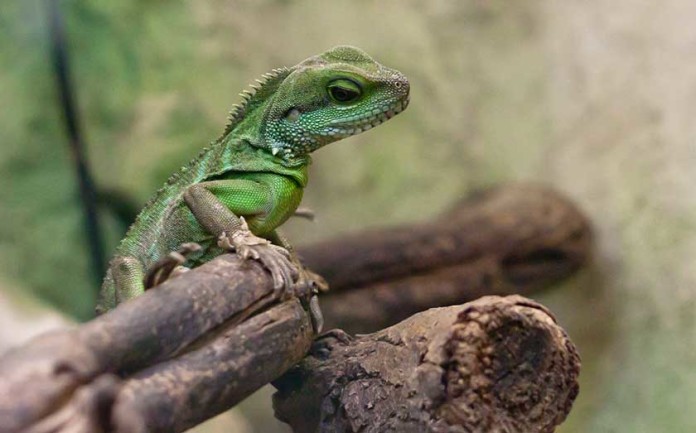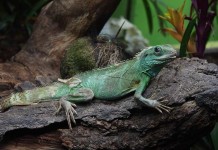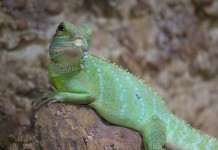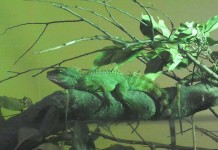Chinese water dragons can be one of the friendliest pets if you are a good owner. Providing good nutrition and ideal conditions does make your dragon love you but you need to do a little bit more. Setting up a perfect enclosure is of course one of the most crucial steps in housing Chinese water dragons but the enclosure also needs to be maintained and cleaned on a regular basis.
Cleaning the tank is necessary to prevent your pet from getting sick. Since water dragons love to stay in warm and humid climates, it is important that you maintain a clean environment to avoid the growth of microorganisms.
If use live plants or potting soil as a substrate, you need to brush the tank daily. You should remove dead foliage and bits of branches that can have an impact on your pet’s stomach. You should also clean the enclosure after your dragon is done with a delicious food treat.
Dead crickets, insects, whole prey and left over fruits and veggies need to be taken out of the enclosure once you finish feeding your dragon. Live whole prey can be extremely deadly if left in the enclosure. It is possible that that the rodent feels scared and tries to bite your dragon if left unattended.
Whole prey or rodents can carry infections and deadly bacteria on their teeth. This can result in serious and sometimes fatal wounds to the dragon. Chinese water dragons are used to eating whole prey in the wild but they behave differently in the captive environment. It is likely that your pet gets scared or stressed when the rodent attempts to bite it. In order to avoid serious consequences, you need to be careful from the start.
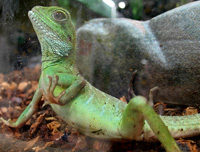 Chinese water dragons can become troublesome because of their habit of defecating in water. You will be a lucky owner if your dragon is potty trained i.e. does not defecate anywhere except the water tray. You will have to change tray water several times during the day if you house multiple dragons.
Chinese water dragons can become troublesome because of their habit of defecating in water. You will be a lucky owner if your dragon is potty trained i.e. does not defecate anywhere except the water tray. You will have to change tray water several times during the day if you house multiple dragons.
You should clean and disinfect the water tray thoroughly whenever you decide to change the water. Chinese water dragons are very sensitive to internal parasite infections. These infections can only be prevented if you maintain cleanliness in the enclosure and change the water frequently.

